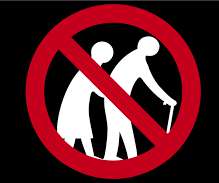Why are older adults demeaned by the health and tech industry?
Aging in Place Technology Watch
JANUARY 23, 2020
Consider an upcoming HIMSS event in Orlando with the charming title: Monitoring Grandma: Adoption of Connected Health Tech by Seniors. The 2017 Harvard article indicates that 1 million had signed up for these home nurse visits – but there were 19 million people covered by Medicare Advantage plans in 2017. With persuasion?













Let's personalize your content